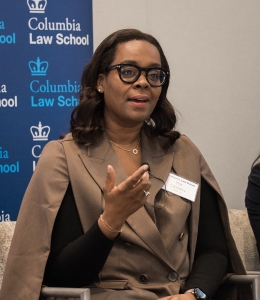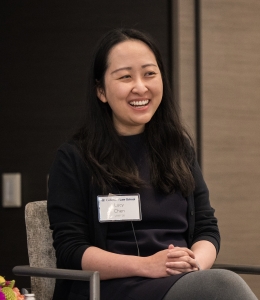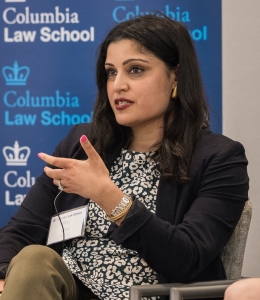Women of Columbia Law Meet to Talk Tech
The initiative’s latest event, held in San Francisco, focused on the implications of AI for the legal profession.
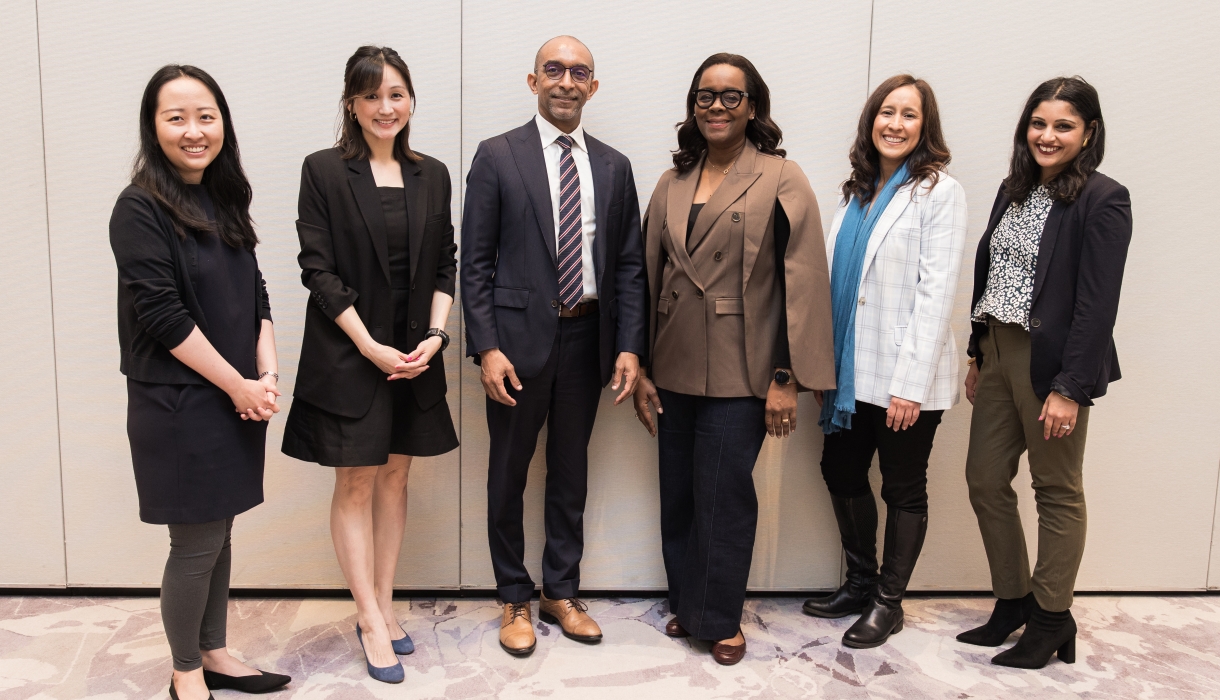
From left to right: Lucy Chen ’16, Leah Ko ’14 LL.M., Dean Daniel Abebe, Nia J.C. Castelly ’00, Michelle Ontiveros Gross ’04, Ritu Ghai ’12.
The promise and peril of generative artificial intelligence were on the agenda for the fourth Women of Columbia Law gathering, which drew graduates and admitted students to an event in San Francisco on March 20.
Designed to bring together an intergenerational community of Columbia Law alumni to learn, network, and engage on topics of common interest, Women of Columbia Law launched in October 2023 with an event at Columbia’s Manhattanville Campus, followed by events in Los Angeles in March 2024 and Washington, D.C., in October 2024.

In the Bay Area, guests were welcomed by Teresa Bazemore ’84, former president and CEO of the Federal Home Loan Bank of San Francisco. “Gatherings like today are necessary and urgent,” she said, recalling the words of Gillian Lester, Alphonse Fletcher Jr. Professor of Law and Dean Emerita, who inaugurated the Women of Columbia Law initiative during her deanship. “Women need to exchange insights, cultivate networks, and collaborate to ensure our presence and influence is felt everywhere that decisions that shape our future are made.”
Daniel Abebe, Dean and Lucy G. Moses Professor of Law, encouraged those in attendance to cultivate their Columbia Law connections. “I hope that the Women of Columbia Law series will prove valuable in … strengthening networks among all of you and also strengthening the relational bonds across generations of graduates,” he said. “An important goal of this initiative is to highlight what is now and what is next for the women of Columbia Law, including our alumnae and faculty who are currently making an enormous and outsize impact in both the public and private sectors across the country and across the world.”
Read more about each panel below:
“Fireside Chat”
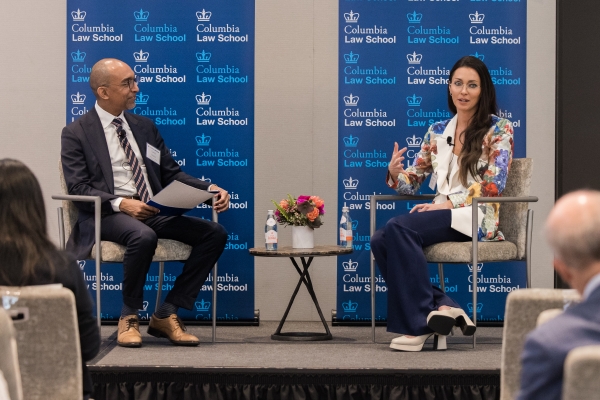
Dean Abebe sat down with Michelle Hull Hyncik ’11, general counsel, Blitzer Family Office/Bolt Ventures, to discuss her career path in sports law, the value of mentorship and experiential learning, and how CEOs view the role of general counsel. Hyncik previously held roles as president of the National Women’s Soccer League’s Utah Royals, in-house senior counsel for Major League Soccer, and regulatory attorney at WilmerHale. “As a president of a sports team, the outside counsel that I gravitate the most toward are those that are decisive, are accountable, confident in their advice, and will shoot it straight and not go into a bunch of terms and conditions and disclaimers,” said Hyncik. A general counsel should “be able to extract what really matters in whatever crisis is going on, and be decisive about it. … Don’t just redline a document but be able to put concisely in an email, ‘This is the main issue.’”
“The Implications of AI in the Legal Profession”
Michelle Ontiveros Gross ’04, a partner at Latham & Watkins, moderated a discussion on generative AI, its future as a product, and its impact on the legal profession with a panel of industry experts including Nia J.C. Castelly ’00, co-founder and head of legal, Checks at Google; Lucy Chen ’16, product counsel, OpenAI; Ritu Ghai ’12, AI corporate counsel, Google DeepMind; and Leah Ko ’14 LL.M., product counsel, Google/YouTube.
